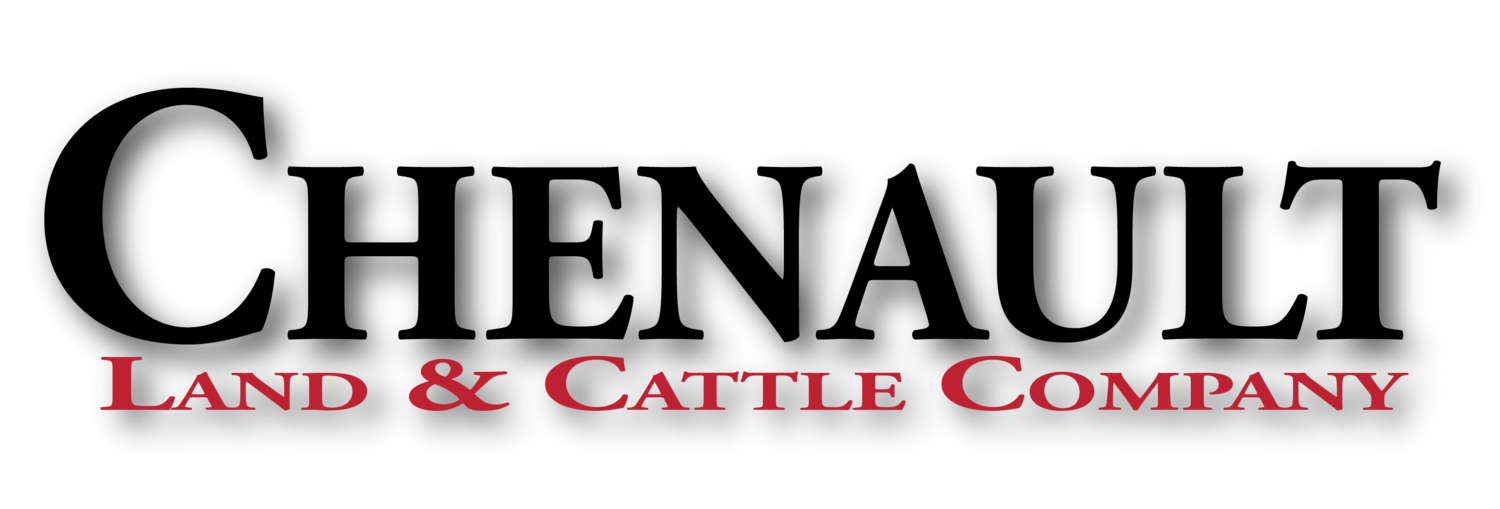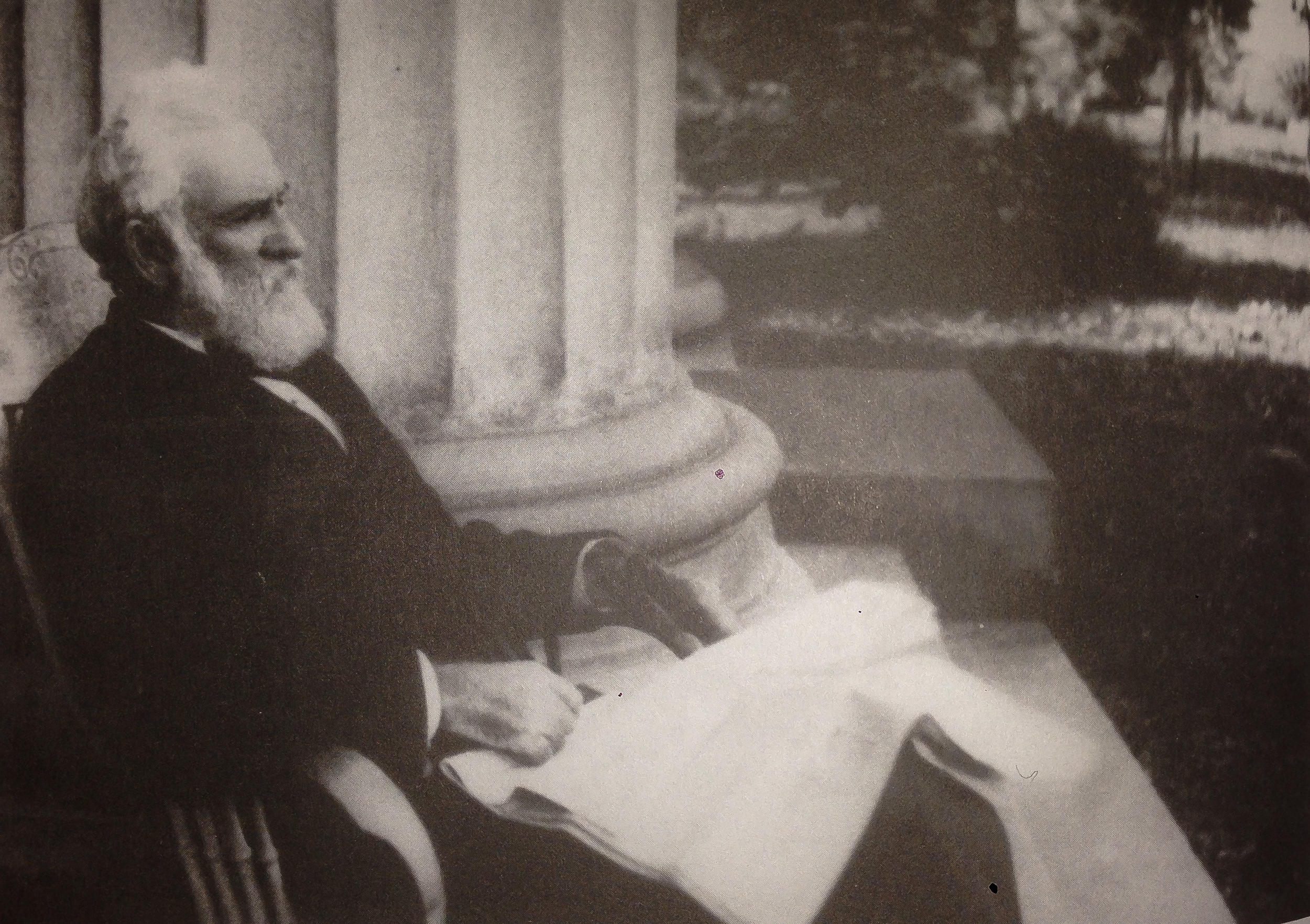Our Story
Our Roots Run Deep
Brother and sister, Ed Chenault and Susan Chenault Hurt are the eighth generation to farm this beautiful area of Central Kentucky.
Monument at Booneborough State Park honoring the Boonesborough SETTLERs .
Their great-great-great-great-great grandfather, William Chenault was a revolutionary war soldier, who served at Valley Forge, Stillwater, Brandywine, and Saratoga, and was a signer of the Albemarle Declaration of Independence
After the War, in 1786, William Chenault and wife, Elizabeth moved from Essex, Virginia to Boonesborough, one of the earliest wilderness settlements, located on the banks of the Kentucky River. Six years later, Kentucky became a state, and eventually, the area they settled became Madison County.
Thomas Douglas Chenault ( Susan and Ed's great-great grandfather)
Like most of Kentucky's original settlers, William Chenault was a farmer. Throughout the 229 years since William Chenault came to Kentucky, the Chenault family has been involved in many businesses and professions; but the one constant has always been farming—cattle, horses, tobacco and grain.
William's son, David Chenault (1771-1851), was a prominent Baptist preacher and one of Madison County's largest farmers (Susan and Ed's great-great-great-great grandfather). Hervey Chenault (1802-1843) was an extensive farmer (great-great-great grandfather). Thomas Douglas Chenault (1840-1907) was a banker, the largest landowner in Madison County, and a prominent breeder of shorthorn cattle (great-great grandfather). Thomas Douglas Chenault Jr. (1873-1946) was also an extensive farmer (great grandfather).
Douglas Chenault on Kings Genius (Ed and Susan's grandfather)
Thomas Douglass Chenault III (1899-1940) (Ed and Susan's grandfather) was a farmer and an important Saddlebred trainer, judge and breeder. Chief among his accomplishments was Kings Genius, who he trained to be a three-time winner of the Kentucky State Fairs Five-Gaited Stallion Stake, and four-time Grand Champion of the Chicago International, a feat unequaled by any other stallion of his era. Kings Genius' most important legacy is as a stallion. He stood at stud at Douglas Chenault's Cumberland View Farm from 1936 to 1942. His breeding at Cumberland View established Kings Genius as a foundation of the Saddlebred breed and one of the greatest sires of all time.
Unfortunately, Douglas Chenault died at an early age, leaving Ed and Susan's grandmother, Sarah Hall a widow. Their father, Ed Chenault, Sr. was only aged one-year at the time.
Kentucky basketball coach Adoph Rupp, Jake Herndon, Tom Baldwin and two other men admiring one of Tom Baldwin's hereford bulls.
In 1954, Sarah Hall married Thomas Eli Baldwin. Tom was a pillar of the purebred hereford breed. Later, after Ed and Susan were born, Tom was, in all material respects, their grandfather. As a result, they grew up in the purebred hereford cattle business. Tom was a larger than life man who imprinted on Ed and Susan a love of cattle and the land.
Ed Chenault Sr, discussing soybeans in a 1984 article in the Lexington Herald-Leader.
Susan and Ed's parents, Ed and Sue Chenault expanded the farming operation. Recognizing the benefits of heterosis / hybrid vigor, Ed Sr. crossed the purebred hereford herd with black angus to establish a black whiteface (or black baldy) herd. Later he crossed his commercial herd with red limousin bulls. Additionally, they built a feedlot to finish steers; established a sod farm, a tree nursery and a landscape business; operated commercial cattle scales; and, raised extensive crops of tobacco, corn and soybeans, including test plots for the University of Kentucky.
Ed's Other Businesses
In 1986, at age 23, Ed started Madison Disposal, a waste hauling business. Ed Sr. and Sue invested and worked in the business. Madison Disposal became very successful, making full-time farming difficult. In 1991, they sold Madison Disposal to Waste Management.
In 1995, Ed started Fox Enterprises, a concrete construction business. If you travel the interstates in the southeastern U.S., or have been in a newer shopping center or subdivision in Central Kentucky, there is a good chance that you have seen Ed's work. Fox Enterprises builds cable barrier systems for interstates and highways, and concrete structures, walls, and extruded curb and gutter systems for shopping centers and subdivisions. Recent projects are located in Kentucky, Arkansas, Georgia, Louisiana, Texas, Ohio and Indiana.
The Commercial Cattle Operation
Ed's passion has always been cattle and the land. Except for a couple of brief periods, Ed has always owned commercial herds. Over the years, he has acquired three farms, totaling about 1,200 acres.
About fifteen years ago, Ed began buying limousin commercial cattle and bulls from his good friend, Bob Minerich (Minerich Land and Cattle Co.). For more than 30 years, Bob has operated the largest limousin-based cattle operation in this part of the U.S. Bob was a founding member and director of the Kentucky Limousin Breeders Association, has been on the national board of the North American Limousin Association (NALF), and is recognized throughout the business as having one of the most elite herds in the breed.
By 2012, Ed's commercial herds had grown to about 300 brood cows. Along the way, he observed that his limousin-influenced cows and bulls were consistently outperforming his other commercial cattle. They had fewer calving problems, consistently bred back, and naturally produced more pounds without any hormones or implants. In particular, the high quality of the beef, and the ability to produce it naturally, allowed Ed to sell his limousin-influenced calves for large premiums to companies such as Strauss Beef. The bottom line was simple:
Ed consistently made more money from his limousin-influenced cows and bulls than he did from his other commercial cattle.
The Goal of Building a Limousin Seedstock Operation
Ed knew that if limousin genetics worked so well him, they would also work for other commercial producers. So, he began exploring the registered limousin seedstock business, with the goal of building a herd from which he could breed, produce and raise premium quality cows and bulls that would make money for commercial cattlemen just like him.
A Big Deal with Minerich Land and Cattle
Over the years, Ed bought a number of registered limousin cows and bulls. But finally, in early 2013, he was able to strike a deal with his good friend, Bob Minerich, to buy a herd that included some of Bob's very best brood cows. In ordinary circumstances, it is difficult to acquire individual brood cows of this quality; the opportunity to acquire so many elite cows is extremely rare. We are grateful to Bob for the opportunity.
These cows represent generations of stacking elite genetics on top of elite genetics. It's as if we pressed a fast-forward button, and instantly advanced our herd by 30 years. At once, this group of brood cows established a bedrock foundation of elite quality, and instantly gave us the ability to breed, produce and raise premium quality cows and bulls in numbers.
The Family Together
Cumberland View Farm, where Susan and Ed grew up, and where we continue to raise cattle today.
Susan and Ed both went to UK. Ed returned to Richmond and married Becky, who is vice president of Foxglove Apartments and owns Hangers, an upscale restaurant in Richmond. Susan married Bill Hurt; they remained in Lexington, where Bill is a lawyer.
For the next 25 years, both families were busy raising kids and working. Other than work and family, Ed spent most of his time with cattle, while Susan spent most of her's with horses. Although the families share certain business ventures, and live only 25 miles apart, they always seemed to be busy, and mostly saw one another on holidays and family gatherings.
Fayette County Fair. From Left to Right: Chris Pennington, Blake Pennington, Brooke Pennington, Ed Chenault, Becky Chenault, Susan Chenault Hurt, Christina Chenault Pennington, Katie Hurt, BelLa Pennington, Samantha Chenault, and Sue ChenaulT (Bill Hurt Took the picture).
Fortunately, that changed in early 2013, shortly after Ed asked niece Katie (Bill and Susan's daughter) if she would like to show a heifer. Susan and Katie began spending time at Ed's farm on Crutcher Pike, working with two heifers, Daisy and Darla.
Susan—who for more than 30 years had been actively involved with horses, instead of cattle—quickly remembered how much she loved cattle.
The short story is that by the end of the summer, Katie's heifer—MINE PLD Daisy 2079Z—was a Limousin Division Champion at the Kentucky State Fair, Susan and Bill bought half of the registered herd, and Susan began working full time on the farm, managing the day-to-day farming operations.
The more important part of the story is that the cattle business reunited the family. We now work together, get to spend time together, and are in near-constant communication with one another . . . and we love every minute of it. It's special to work with your family in business you love that goes back eight generations and 229 years.











